Product certifications in cosmetics aren’t just formalities—they’re the tools that build consumer trust and open market opportunities. With growing consumer interest in product safety and transparency, having the right certifications can set your brand apart in the competitive beauty industry.
We’ve created this guide to help you find every certification you need in one place. From regulatory requirements to voluntary standards, you’ll find clear information about certification criteria and direct links to official sources. Each section breaks down the specific requirements and steps needed to secure these certifications for your cosmetic products.
Use this guide as your central resource for cosmetic certifications. Each certification includes direct links to official sources, making it simple to start your certification process. Whether you’re launching your first product line or expanding your existing brand, this guide will help you meet compliance requirements and build consumer confidence.
Table of Contents
Quick reference: Essential cosmetic certifications at a glance
| Category | Certifications | Description | Products that need this certification |
| Mandatory regulatory certifications | FDA Registration, GMP Certification, Safety Assessments, ISO 22716 | Basic regulatory compliance for manufacturing and selling cosmetics in the USA | All cosmetic products and manufacturing facilities |
| Quality and safety certifications | EWG Verified, NSF/ANSI 305, ISO 9001:2015 | Validates product safety, quality management systems, and manufacturing practices | Products claiming specific safety or quality standards |
| Natural and organic certifications | USDA Organic, COSMOS, NaTrue, NSF/ANSI 305 | Verifies natural ingredient sourcing and organic processing methods | Products marketed as natural or organic |
| Ethical and sustainability certifications | Leaping Bunny, PETA Certification, Fair Trade, Green Business | Confirms ethical practices in testing, sourcing, and environmental impact | Products with cruelty-free, ethical, or sustainability claims |
| Specialized certifications | Halal, Non-GMO Project, Gluten-Free, Hypoallergenic | Validates specific product claims and ingredients | Products targeting specific consumer needs or preferences |
Know your cosmetic certifications!
Here, we’ve mapped out what each certification actually delivers, from market access to consumer trust, so you can make informed choices.
Mandatory regulatory certifications
These certifications form the foundation of cosmetic manufacturing compliance in the USA. They ensure product safety, quality standards, and proper manufacturing practices—essential requirements for selling cosmetic products in the American market.
1. FDA facility registration: Basic requirement for all cosmetic manufacturing facilities under the FDA’s Voluntary Cosmetic Registration Program (VCRP). While voluntary, this registration is highly recommended and may become mandatory under new legislation.
Official forms:
- Form FDA 2511 for product registration
- Form FDA 2512 for facility registration
- eDRLS electronic system registration
Criteria:
- Complete facility information and documentation
- Product ingredient listings
- Manufacturing process documentation
- Safety data maintenance
- Regular updates of registration information
Where to get it: FDA’s Online Registration Portal
2. GMP certification (ISO 22716): Validates that your facility follows Good Manufacturing Practices specific to cosmetics production.
Official certifications:
- ISO 22716 certification mark
- Certificate of GMP Compliance
- Certifying body’s GMP mark
Criteria:
- Personnel training programs
- Suitable premises and equipment
- Proper documentation systems
- Production controls
- Quality control procedures
- Clear complaint handling process
Where to get it: ISO-accredited certification bodies like SGS, LRAQ, etc.
3. Safety assessment certification: Required documentation proving product safety under intended use conditions.
Official documentation:
- Safety Assessment Report
- Product Information File (PIF)
- Safety Data Sheet (SDS)
Criteria:
- Complete ingredient safety data
- Stability testing results
- Microbiological quality testing
- Toxicological assessment
- Documented safety studies
- Clear usage instructions
Where to get it: Qualified Safety Assessors or authorized testing laboratories
4. Osha safety certification: Ensures workplace safety compliance in manufacturing facilities.
Official documentation:
- OSHA compliance certificates
- Safety training records
- Hazard assessment documents
Criteria:
- Workplace safety protocols
- Chemical handling procedures
- Emergency response plans
- Employee safety training
- Regular safety audits
- Proper safety equipment
Where to get it: OSHA
Quality and safety certifications
These certifications go beyond basic regulatory requirements to validate higher standards of product safety and quality management. They’re valuable for brands looking to build consumer trust and demonstrate their commitment to safety.
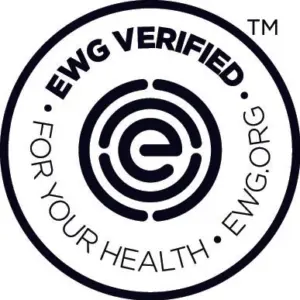 Ewg verified: One of the most respected safety certifications in personal care products. This certification confirms products meet strict safety and transparency standards
Ewg verified: One of the most respected safety certifications in personal care products. This certification confirms products meet strict safety and transparency standards
Criteria:
- Full ingredient disclosure
- No EWG red-list ingredients
- Manufacturing transparency
- Proper labeling practices
- GMP documentation
- Regular verification updates
Where to get it: Environmental Working Group (EWG)
 NSF/ANSI 305: Quality standard specifically for personal care products with organic ingredients.
NSF/ANSI 305: Quality standard specifically for personal care products with organic ingredients.
Criteria:
- Minimum 70% organic content
- Documented ingredient sources
- Quality control systems
- Processing method validation
- Regular facility audits
- Proper organic handling
Where to get it: NSF International
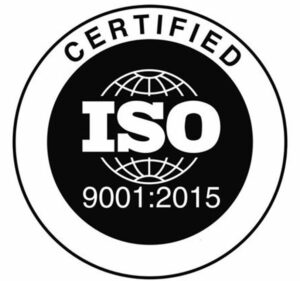 ISO 9001:2015: International standard for quality management systems in manufacturing.
ISO 9001:2015: International standard for quality management systems in manufacturing.
Criteria:
- Documented quality processes
- Risk management systems
- Customer focus programs
- Continuous improvement plans
- Internal audit procedures
- Management review process
Where to get it: Accredited ISO certification bodies including Global Legit Solution, SGS, etc.
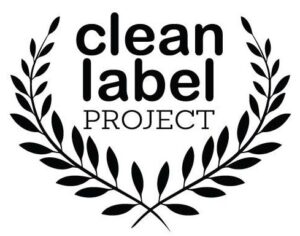 Clean label project: Focuses on product purity and tests for harmful contaminants.
Clean label project: Focuses on product purity and tests for harmful contaminants.
Criteria:
- Heavy metal testing
- Environmental toxin screening
- Plasticizer analysis
- Label claim verification
- Supply chain transparency
- Regular product testing
Where to get it: Clean Label Project organization
Natural and organic certifications
These certifications verify that products meet specific standards for natural and organic ingredients. They’re essential for brands targeting the growing natural beauty market and consumers seeking clean beauty products.
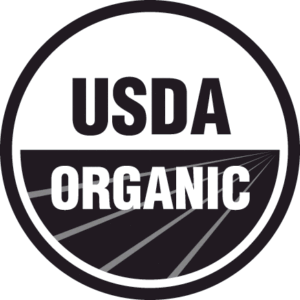 USDA organic: The federal standard for organic ingredients in personal care products. While primarily for agricultural ingredients, it’s becoming increasingly important in cosmetics.
USDA organic: The federal standard for organic ingredients in personal care products. While primarily for agricultural ingredients, it’s becoming increasingly important in cosmetics.
Criteria:
- 95-100% organic ingredients
- No prohibited substances
- Separate organic handling
- Detailed record keeping
- Third-party inspection
- Annual certification renewal
Where to get it: USDA Agricultural Marketing Services
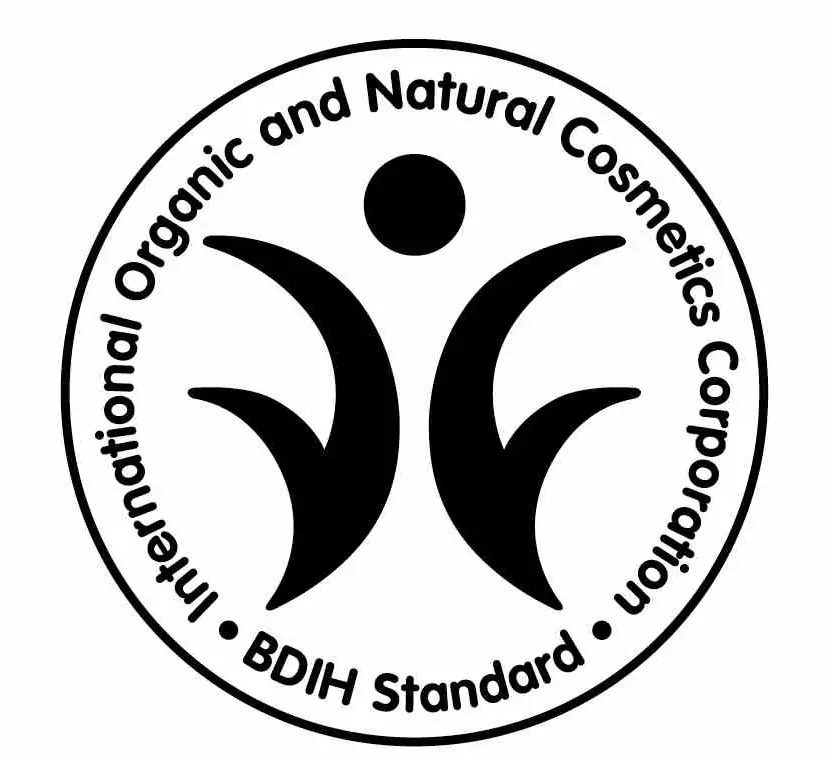 Cosmos standard: International standard specifically designed for organic and natural cosmetics.
Cosmos standard: International standard specifically designed for organic and natural cosmetics.
Criteria:
- Minimum 95% natural ingredients
- At least 20% organic content
- Sustainable packaging
- Approved processing methods
- Environmental management plan
- Full ingredient traceability
Where to get it: COSMOS Standard
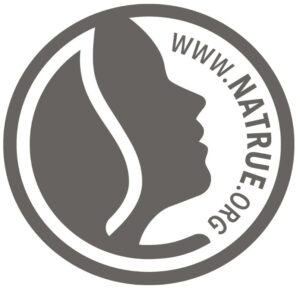 NATRUE: European-based certification gaining recognition in the US market for natural cosmetics.
NATRUE: European-based certification gaining recognition in the US market for natural cosmetics.
Criteria:
- Natural and derived-natural ingredients only
- Three certification levels available
- Sustainable production methods
- No synthetic fragrances
- No petroleum-based ingredients
- Annual re-certification
Where to get it: NATRUE
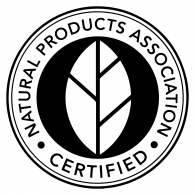 Natural Products Association (NPA): US-based certification for natural personal care products.
Natural Products Association (NPA): US-based certification for natural personal care products.
Official logos:
- NPA Natural seal
- Certified Natural mark
- Digital verification badge
Criteria:
- 95% natural ingredients
- Natural processing methods
- No animal testing
- Biodegradable ingredients
- Environmentally sensitive packaging
- Full formula disclosure
Where to get it: Natural Products Association
Ethical and sustainability certifications
These certifications show your commitment to ethical practices, from animal welfare to environmental protection. They’re crucial for brands wanting to meet growing consumer demand for responsible and sustainable beauty products.
 Leaping Bunny: The gold standard for cruelty-free certification in cosmetics. This certification proves no animal testing at any stage of product development.
Leaping Bunny: The gold standard for cruelty-free certification in cosmetics. This certification proves no animal testing at any stage of product development.
Criteria:
- No animal testing by company
- No third-party animal testing
- Supplier monitoring system
- Annual renewal process
- Supply chain audits
- Fixed cut-off date policy
Where to get it: Leaping Bunny Org
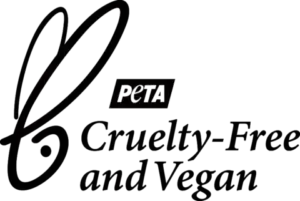 Peta certified cruelty-free: Widely recognized certification verifying no animal testing in product development.
Peta certified cruelty-free: Widely recognized certification verifying no animal testing in product development.
Criteria:
- Written no-test policy
- Supplier agreements
- No sales in China (unless exempt)
- Ingredient verification
- Regular compliance updates
- Public commitment statement
Where to get it: PETA’s Beauty Without Bunnies program
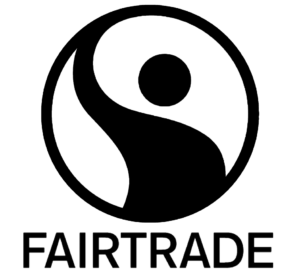 Fair trade certification: Ensures ethical sourcing of ingredients and fair labor practices throughout the supply chain.
Fair trade certification: Ensures ethical sourcing of ingredients and fair labor practices throughout the supply chain.
Criteria:
- Fair wages for workers
- Safe working conditions
- Environmental protection
- Community development funds
- Transparent supply chain
- Regular social audits
Where to get it: Fair Trade USA
Specialized certifications
These certifications address specific consumer needs and market segments. They help brands target particular consumer groups and validate specialized product claims.
 Halal certification: Verifies products meet Islamic law requirements, crucial for brands targeting Muslim consumers.
Halal certification: Verifies products meet Islamic law requirements, crucial for brands targeting Muslim consumers.
Criteria:
- No prohibited ingredients
- Separate production lines
- Proper cleaning protocols
- Ingredient traceability
- Storage requirements
- Regular site inspections
Where to get it: American Halal Foundation
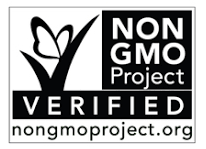 Non-GMO Project Verified: Confirms products are produced without genetically modified organisms.
Non-GMO Project Verified: Confirms products are produced without genetically modified organisms.
Criteria:
- GMO risk ingredient testing
- Supplier verification
- Segregation practices
- Traceability requirements
- Annual renewal
- Ongoing monitoring
Where to get it: Non-GMO Project
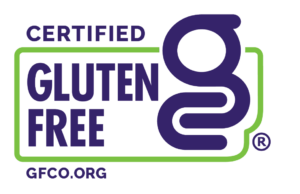 Gluten-Free Certification: Important for consumers with gluten sensitivities using personal care products.
Gluten-Free Certification: Important for consumers with gluten sensitivities using personal care products.
Criteria:
- Less than 10ppm gluten
- Cross-contamination controls
- Ingredient verification
- Regular product testing
- Facility inspections
- Documentation systems
Where to get it: Gluten-Free Certification Organization (GFCO)
- Hypoallergenic certification: Validates products are less likely to cause allergic reactions.
Official logos:
- Allergy certified mark
- Dermatologist tested seal
- Clinical testing verification
Criteria:
- Allergen-free formulation
- Clinical testing results
- Sensitivity testing
- Safety assessments
- Documentation of studies
- Regular verification
Where to get it: Independent testing laboratories and certification bodies
Making certification decisions for your brand
“Which certifications do I really need?” “How much will this cost?” “Will these certifications actually help my sales?” If you’re asking these questions, you’re not alone. Every cosmetic brand faces these decisions, and the wrong choices can cost thousands in fees and months of preparation time. So follow these steps to invest in the right type of certificate.
Choosing the right certifications
Let’s cut through the confusion. While your competitors might be chasing every certification symbol they can fit on their packaging, smart brands know better. The truth is, certain certifications carry more weight with buyers than others, and some combinations work better for specific market segments. Here’s what you need to ask before making your purchase decisions:
- What are your target market’s expectations?
- Which claims are essential for your product positioning?
- What’s your budget and timeline for certification?
- Do you have the resources to maintain certification standards?
Cost considerations
- Mandatory certifications: Plan for FDA registration and safety testing costs
- Quality certifications: Factor in audit and annual renewal fees
- Organic certifications: Consider higher ingredient costs and certification fees
- Multiple certifications: Look for certification bodies offering combined audits
Implementation tips
- Start with mandatory certifications
- Build quality management systems early
- Document everything from day one
- Train staff on certification requirements
- Plan for annual renewal costs
- Consider working with certification consultants
Next steps
- Review your product line and target market
- Prioritize certifications based on business goals
- Contact certification bodies for detailed requirements
- Create a certification budget and timeline
- Begin gathering required documentation
Keep this guide bookmarked as your reference for certification requirements and official sources. Each certification body provides detailed application packages and support for the certification process.
Remember to verify current requirements directly with certification bodies, as standards may change over time. Your certification journey builds trust with consumers and opens new market opportunities for your brand.
![Complete Guide to Cosmetic Certifications in the USA- Requirements & Logos [2025]](https://govisually.com/wp-content/uploads/2025/01/Complete-Guide-to-Cosmetic-Certifications-in-the-USA-Requirements-Logos-2025.jpg)



